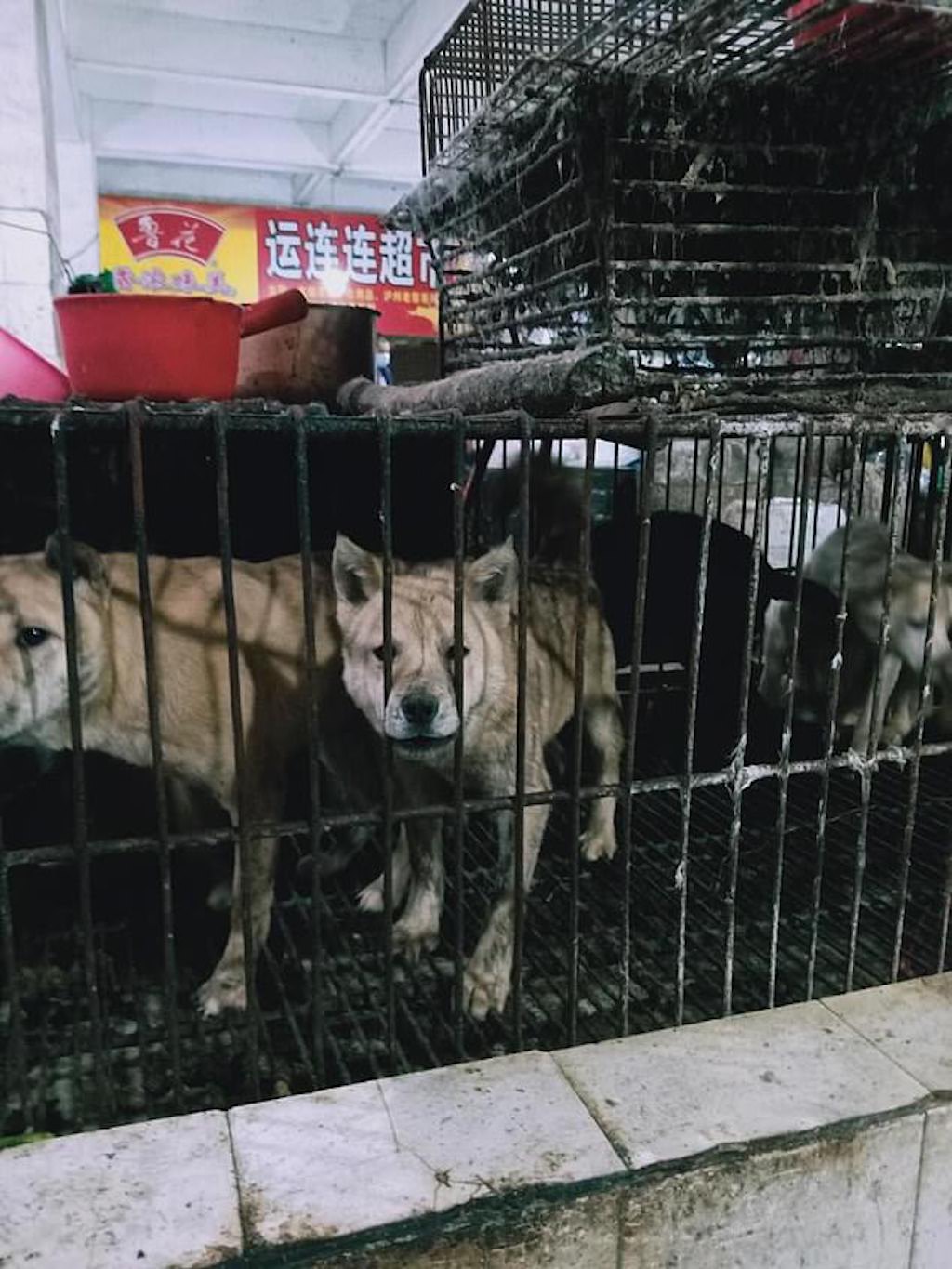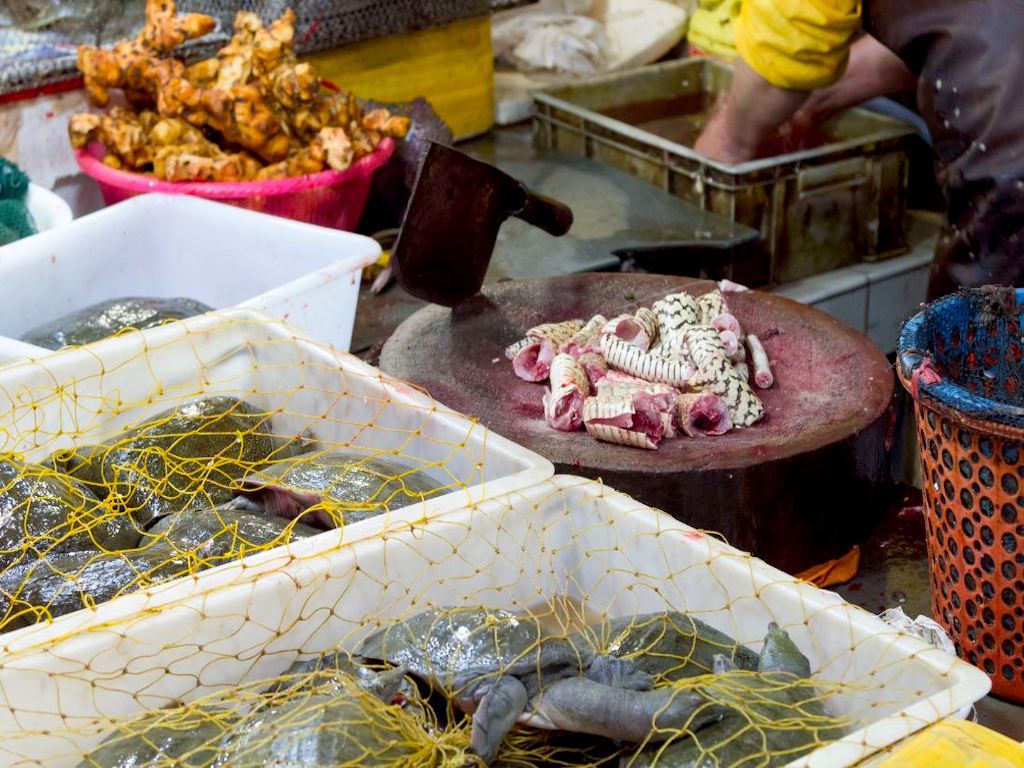4 Mins Read
As Covid-19 appears to ease in China, the country’s economy and daily life is beginning to resume. According to written reports and photographs by reporters on the ground, the markets that sell bats, pangolins and other wildlife has reopened, in direct contradiction to the permanent ban on wildlife trade and consumption that the authorities implemented in late February in response to the pandemic. Scientists have warned that without stricter oversight and enforcement of the illegal wildlife trading activities of markets, the threat to global public health continues to linger.
One month after China’s permanent shutdown of its illegal US$74 billion wildlife farming industry, an effective extension of the previous temporary law introduced in January that prohibited the trade and consumption of non-aquatic wild animals in response to the coronavirus pandemic, markets appeared to have returned to operate without strict oversight of illegal wildlife trading activities.
It comes as the spread of Covid-19 has eased in China, with the epicentre of the pandemic shifting to the United States and Europe in recent weeks. As of press time, the global cases of Covid-19 is nearing 1 million and deaths have surpassed 46,000. Last week, reporting from the World Health Organisation (WHO) showed that more than 85% of the new cases of infections are located in Europe and the United States.
According to a correspondent for the Daily Mail, markets in the southern Chinese city of Guilin and Gongguan have since reopened, and are continuing to sell bats, pangolins and other wild animals for human consumption despite the permanent ban. The markets are watched by guards, who ensure that no images or videos are being taken, says the report.
“The markets have gone back to operating in exactly the same way as they did before coronavirus,” the publication’s China-based correspondent was quoted saying. “Everyone here believes the outbreak is over and there is nothing to worry about anymore,” he added.
Similar details have been reported by other news outlets including Sky News Australia.

The news has alarmed the scientific community, who have traced the outbreak to a seafood market in Wuhan city that also sold live wild animals such as civet cats, bats, snakes and pangolins. Recent evidence has suggested that pangolins were the probable intermediary host of Covid-19 that had jumped to infect humans – and pangolins are sold illegally for their keratin scales, a common ingredient in traditional Chinese medicine.
Previous outbreaks of coronaviruses have too been linked to the illegal wild animal industry, such as SARS, which the civet cat was believed to be the intermediary host, and MERS, which had been linked to camels.
Aside from the reports of little to no oversight to clamp down on the illegal and dangerous trade in wild animals in some Chinese markets, there has been growing criticism of the law itself, with experts pointing out that the prohibition in wildlife trade has multiple loopholes. A number of wildlife items that are taken for medicinal and non-food purposes are exempt from the ban, for instance. This has made it difficult for e-commerce companies and delivery operators to restrict wildlife products that are advertised for traditional medicinal uses online.
Most recently, conservationists and public health experts have been alarmed about the China National Health Commission’s promotion of the use of bear bile as a coronavirus treatment, despite there being a synthetic form of the medicinal acid widely available. The WHO has recently reiterated that there has yet to be any cure available for Covid-19, and that the world is still 12 to 18 months away from a vaccine or treatment.
Amid mounting criticism, authorities in Shenzhen appear to have taken a different policy route. As a part of their clampdown on the wildlife trade since the coronavirus outbreak, the city government of Shenzhen in Guangdong province has proposed to ban the eating of dogs and cats, which will come into force on May 1, though the ban will not extend to turtles and frogs, which are both commonly consumed in Southern China.
While the pandemic has shifted global attention on the dangers of the wildlife industry, researchers are now saying that the broader global food system must also be tackled. The global appetite for animal protein that has fuelled mass industrial livestock farming has too fuelled the risk of pandemics, and we urgently need to transform the current food system to mitigate the emergence of future global disease outbreaks.
Read our earlier news coverage of Covid-19 here and more news on animal rights here.
Update April 2020: This article has been updated to reflect additional information on the news story and photographs.
Lead image courtesy of Getty Images.




